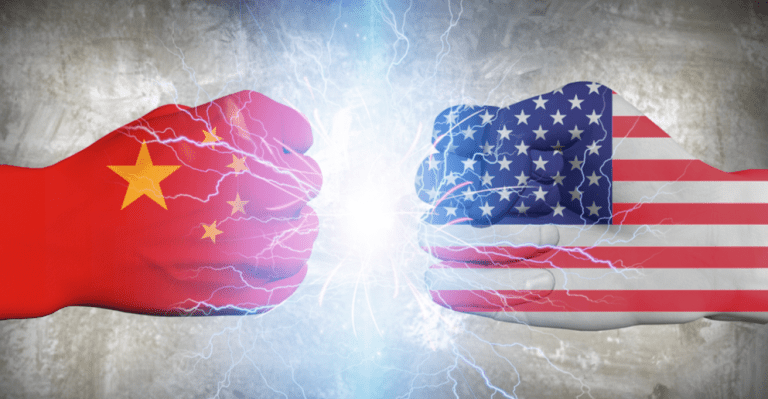
[1] On April 9, 2024, I shared a panel discussion on Crucial Compliance Updates: What’s on Your Radar?, a program that was hosted by the Madison International Trade Association (MITA). My presentation explored the intricacies and challenges that global companies now face when trying to maintain compliant operations amidst conflicting U.S. and China laws. At the heart of the issue lies a fundamental question: how can a company comply with both U.S. and China regulations when they directly contradict each other? This challenge is particularly acute because the US and China, the world’s two largest economies, are increasingly enacting laws with overlapping reach but divergent objectives. This legal tug-of-war forces businesses to navigate a labyrinth of regulations that can have severe consequences for their business continuity, reputation, and financial well-being.
The Dueling Sanctions Landscape
Dueling sanctions refer to the tit-for-tat measures enacted by the United States and China against each other in response to various issues ranging from human rights concerns to trade disputes to geopolitical tensions. When one country imposes sanctions on the other, the targeted nation typically retaliates with its own set of sanctions, leading to a cycle of escalation. These sanctions come in various forms, including additional tariffs; asset freezes; import and export control trade restrictions; travel bans; and financial penalties targeting individuals, entities, and even entire sectors.
With regards to United States sanctions regime, these sanctions have been notably expansive, targeting entities and individuals worldwide for activities deemed contrary to U.S. interests. In recent years, the U.S. has escalated sanctions against Chinese companies and officials over issues such as alleged human rights abuses in Xinjiang; national security concerns related to Huawei and other Chinese tech firms; and perceived infringement of Hong Kong’s autonomy.
China on the other hand, and in response to U.S. sanctions, has implemented its own retaliatory sanctions, targeting U.S. individuals, companies, and organizations deemed to have interfered in its internal affairs or threatened its sovereignty. These measures have included visa bans and asset freezes on US individuals critical of China’s policies, and restrictions on US defense contractors involved in the sale of arms to Taiwan.
Implications for Businesses
For businesses with operations or interests in both the U.S. and China, navigating the dueling sanctions landscape is akin to walking a tightrope. These sanctions can have far-reaching consequences, impacting supply chains, trade relations, and investment opportunities. Here are some key implications:
Navigating the Challenges
Despite the daunting challenges posed by dueling sanctions, there are steps that businesses can take to mitigate risks and protect themselves:
Conclusory Remarks
The future of US-China sanctions remains uncertain. Businesses should be prepared for a prolonged period of tension and potential for additional sanctions. As dueling sanctions will continue to shape the US-China relationship, businesses must adapt to the evolving landscape and proactively manage sanctions risks.
[1] Ngosong Fonkem is an International Trade attorney at Harris-Sliwoski LLP.

Create networking & educational opportunities on a wide variety of international topics.
Discover MITA events